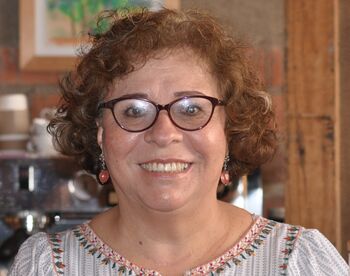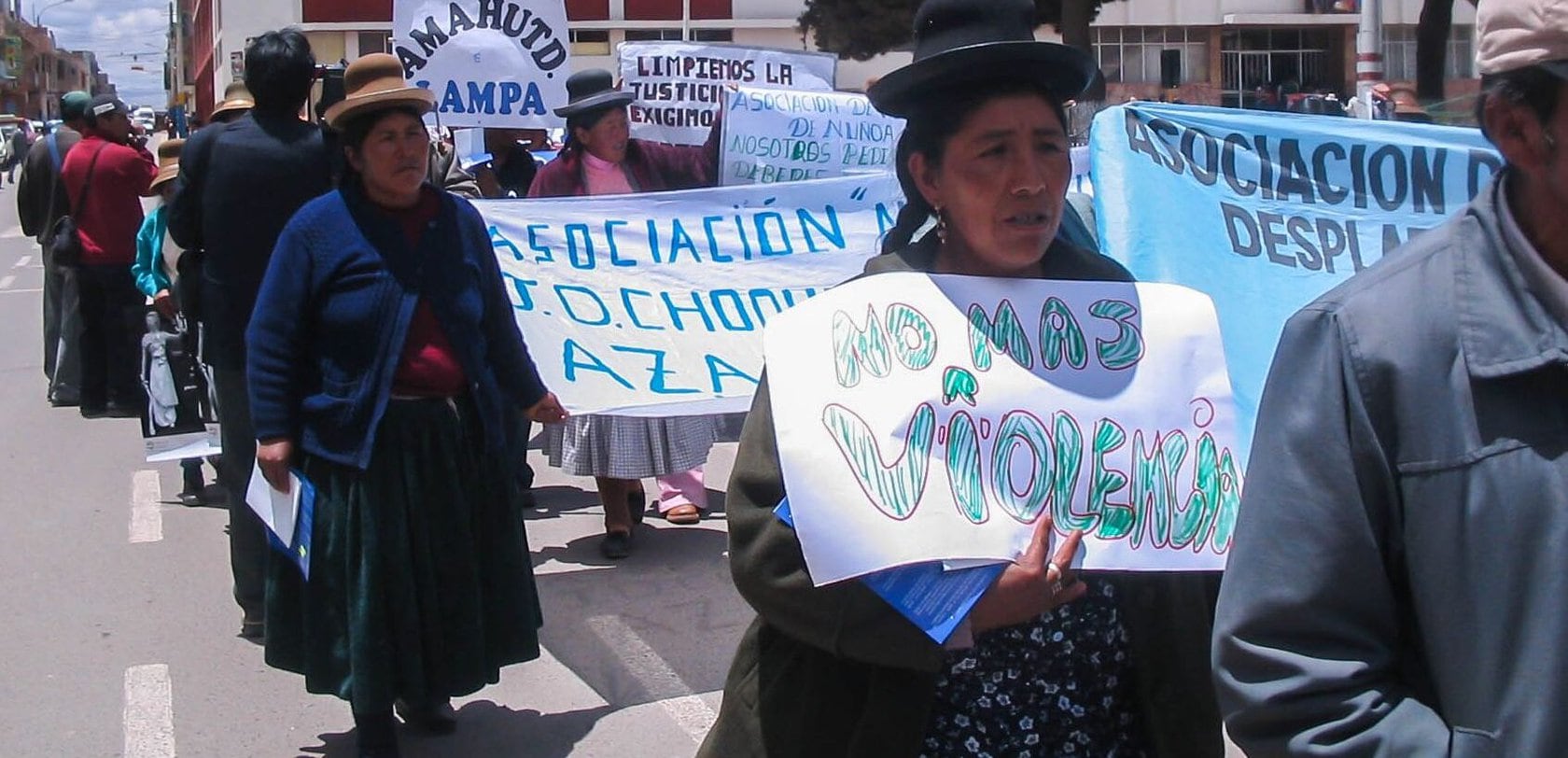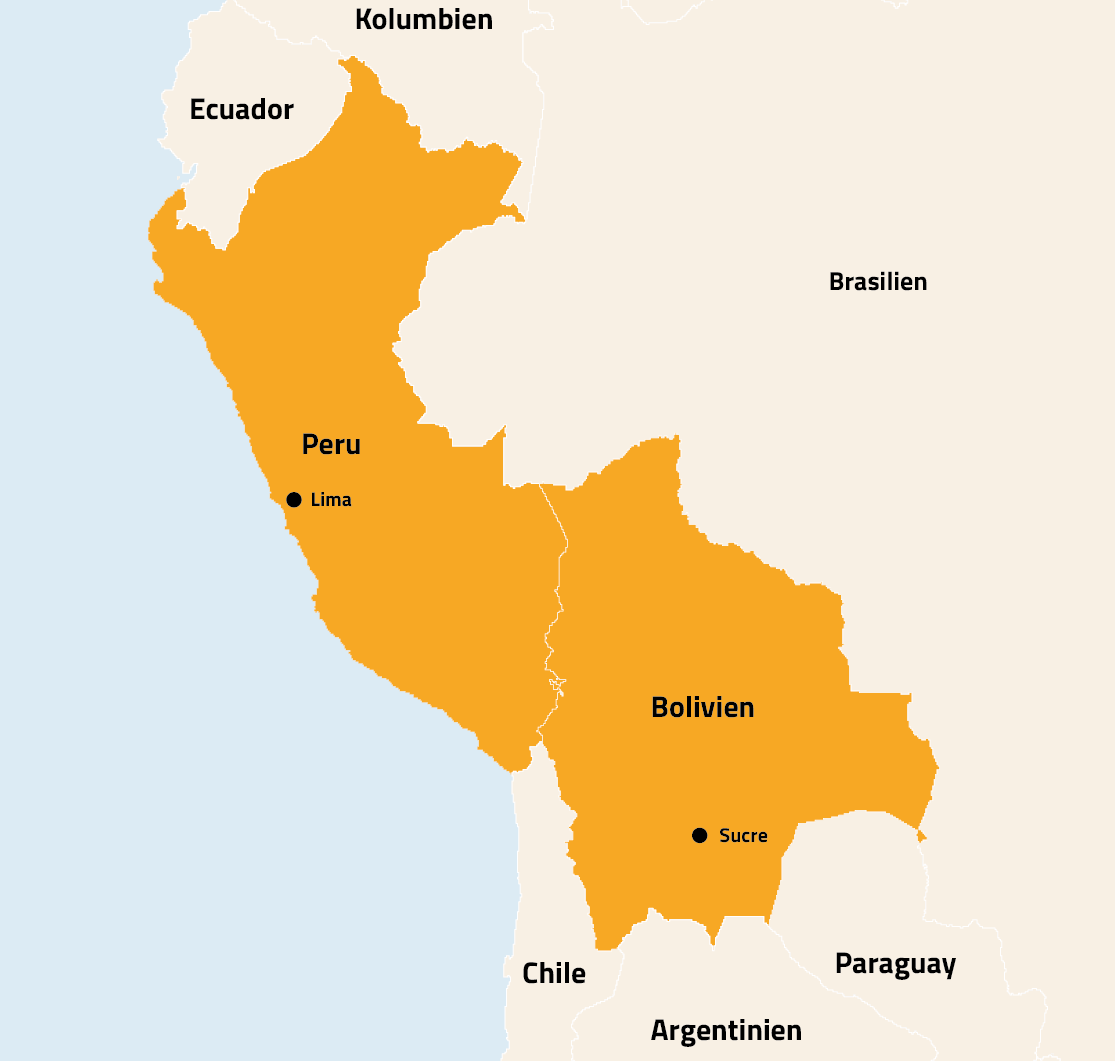
Jannet Villanueva
Coordinator Latin America (Bolivia and Peru)

Project Number: 400.1021
Threats, insults, beatings: Over two thirds of adult women in Bolivia and Peru have experienced violence. Almost nowhere else in the world is violence against women and girls as pronounced as in Latin America. Sexualized violence in particular is widespread and affects women, children and young people.
Sexualized violence affects the physical and mental health of those affected and repeatedly results in unwanted pregnancies and the infection of diseases; it is even the cause of suicides. In Peru, 92 percent of the statistically recorded victims of sexualized violence are female. And every year, more than 1,400 girls under the age of 14 give birth to a child as a result of abuse.
Together with our partner organizations in Bolivia and Peru, Mission 21 promotes the prevention of violence as well as psychosocial and legal support for victims of sexual and domestic violence. Children and young people in Bolivia as well as girls, women and transgender people in the greater Lima area (Peru) are reached.
Together, we contribute to the right to a life free from physical and psychological violence and strive for gender equality and peaceful societies.
Since January 1, 2025, this project has focused its activities on Bolivia and Peru. Cooperation with our partner organizations in Chile was terminated due to the need to focus more strongly on programme work.
In terms of political representation, women are present in both Bolivia and Peru and important legal progress has been made in recent years to achieve more equal opportunities. Nevertheless, femicide, rape and sexualized violence against women, non-binary people, children and young people are on the rise in both countries.
In Peru, the authorities registered a total of 146 femicides and more than 140,000 cases of violence against women in 2023. Around 29,000 of these, i.e. around one in five, involved sexual violence.
The situation was similar in Bolivia in 2023. 81 femicides, 25 child murders and 11,450 reports of sexual violence were registered.
The lack of motivation on the part of the authorities in both countries to combat sexualized violence more effectively can be seen in the high number of women and girls registered as disappeared, which is growing year after year. Between January 2018 and July 2021, 46,762 women and girls disappeared in Peru, more than 60 percent of whom were minors, and these cases are generally associated with human trafficking, forced prostitution, forced labor and organ and child trafficking.
Currently, 46 women's shelters and around 400 state emergency call centers in Peru offer advice and protection. However, according to our partner organization Flora Tristán, they are unable to meet the high demand from women seeking protection from domestic violence.
Due to their disabilities, women and children with disabilities are much more often the target of sexual and other violence than people without disabilities.
In Bolivia, people with disabilities face numerous obstacles, leading to poverty, violence, social exclusion and discrimination. A legal framework does exist to protect people with disabilities from violence. However, there are gaps in these standards and they are hardly known to those affected or to the relevant authorities, which means that they are often not applied.
The study by our partner organization Flora Tristán shows that assaults on vulnerable people take place in supposedly "safe" environments: within the family, at school or in a healthcare facility. Many cases are neither reported nor reported, which is why they are referred to as "invisible victims".
In Bolivia and Peru, complaints often fail due to the bureaucratic system or untrained staff who are unable and unwilling to offer help. As a result, victims question the usefulness of filing a complaint or refrain from doing so. However, if a complaint is made, the victims are often persuaded to seek out-of-court mediation. Victims are thus denied access to the legal system in practice.
Very few perpetrators therefore have to fear sanctions, with only 10 percent of reports leading to a conviction (Peru). The statistically recorded cases of sexualized violence are only partial - the number of unreported cases is likely to be high.
We support the project work of partner organizations that pursue the right to a life free from physical and psychological violence and work persistently on social and legal reforms to achieve a gender-equitable and peaceful society - in accordance with UN Sustainable Development Goals 5 and 16.
Bolivia
In Bolivia, we support our partner organization Machaqa Amawta in its work at nine schools in La Paz (Andes) and Riberalta (Amazonas). In regular workshops, children and young people with and without disabilities are made aware of sexualized violence in an age-appropriate manner and are encouraged to recognize dangers, set boundaries and seek help where necessary using playful methods.
Children learn what adults can and cannot do with them. They learn to find words for their private parts - this is also taboo in Bolivia - or to recognize the difference between a good and a bad touch or a good and a bad secret.
Our partner organization has developed its own educational material for this purpose, which focuses in particular on the needs of children and young people with disabilities. In addition, teachers, school management and interested parents are sensitized to the topic and informed about the legal duties to protect. The work also includes supporting schools in developing a roadmap with specific instructions for action. The main target groups of the project work together with Machaqa Amawta are
Peru
The Peruvian Women's Centre (PFZ) Flora Tristán is a feminist partner organization of Mission 21 that has been working for more than 45 years to defend the rights of women in all their diversity - in particular the right to a life free of violence and the promotion of gender equality. In their area of activity, they raise awareness among law enforcement agencies and carry out vociferous protests in public spaces to inform the population about abuses and persuade the authorities to take action.
This feminist-oriented public relations work supports victims and relatives of gender-based violence and serves as a strategy for raising public awareness.
Mission 21 supports the PFZ Flora Tristán with its work in two regions, the catchment area of the capital Lima and the rural area in Cusco.
Flora Tristán in Lima
PFZ Flora Tristan in Cusco
In the Andean communities, our partner organization combines the prevention of sexualized violence with strategies to promote women's income and political participation through agroecological farming.
Women become knowledge carriers for food security and generate income for their households and village communities. On the one hand, this allows them to expand their decision-making scope within the household. On the other hand, they are seen as key figures in adapting to climate change at community level, and the male population gives them a greater say.
The main target group for the project work is from 2025:
Casa DEI in Costa Rica The cooperation with "Casa Dei", the shelter for persecuted human rights activists from all over Latin America, in Costa Rica is being continued in a separate project, together with our partner organization, the Ecumenical Research and Training Center DEI. It bears the project number 400.1020.
Peru, Cusco - PFZ Flora Tristán
Prevention work against sexualized violence is carried out in the Andean communities in combination with strategies to promote income through agroecology. The economic empowerment of women made it possible for committed women to inform and sensitize various social groups on the topic.
La Paz & Riberalta, Bolivia - Machaqa Amawta
Casa DEI (from 2025 project number 400.1020)
The most important activities in 2024 were as follows:
An integration and security plan has been drawn up for all human rights defenders and their family members. All of them have now found a safe place to live. Two people were able to return to their country, while the others remained in Costa Rica through other support networks. There was more accompaniment this year, as a group of human rights defenders from Brazil were present and accompanied during a trial at the Inter-American Court of Human Rights based in San José, Costa Rica. Two large families from Nicaragua were also welcomed.
SEDEC
In 2024, SEDEC reached a total of 300 women who took part in 21 workshops on the prevention of gender-based violence and other activities in collaboration with other organizations in Concepción (Chile). 58 women affected by gender-based violence received individual support and counseling. SEDEC drew up reports that the women were able to submit to the courts. The majority of the women who received support from SEDEC were able to free themselves from their partner's violent relationship. The course evaluations show that the self-esteem of the participants has generally increased, be it through personal development, health knowledge or the knowledge of how to defend themselves (legally) against gender-based violence or abuse of any kind. Due to a stronger focus of Mission 21's programme work, the cooperation with the partner organizations in Chile (SEDEC and CTE) was terminated at the end of 2024.
In the following Film "Strategic litigation against violence against women" In the following film, our partner organization Flora Tristan gives an insight into the legal support work of a family whose daughter was the victim of a femicide and is looking for justice.

To the podcast "Voices of hope", Episode 6 "Struggling mothers and father of El Alto" on the work of our partner Machaqa Amawta


34 million inhabitants (2023)
146 femicides, 28,991 cases of sexual violence, 5380 missing girls and women (2023)
11.3 million inhabitants (2024)
81 femicides, 25 child murders, 11,450 reports of sexual violence (2023)
Project budget 2025
CHF 216'400
Mission 21
Protestant Mission Basel
PO Box 270
Missionsstrasse 21
4009 Basel, Switzerland
Tel.: +41 (0)61 260 21 20
info@mission-21.org
Donation account Switzerland:
IBAN: CH58 0900 0000 4072 6233 2
Tax exemption number:
CHE-105.706.527
Donation account Germany:
Savings Bank Lörrach-Rheinfelden
Swift BIC: SKLODE66
BLZ: 683 500 48
IBAN: DE39 6835 0048 0001 0323 33
Account No. : 1032333